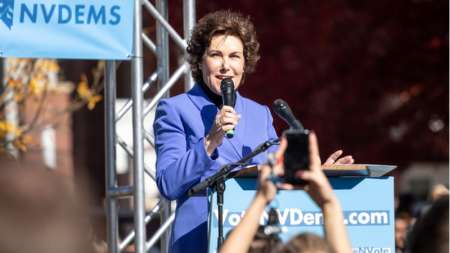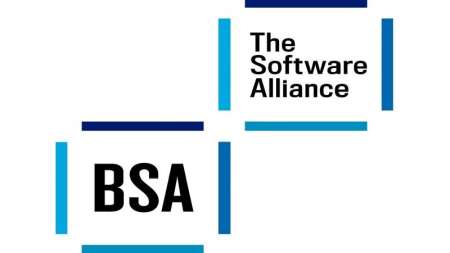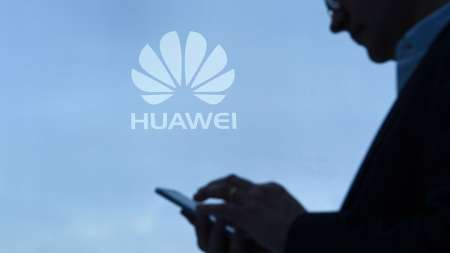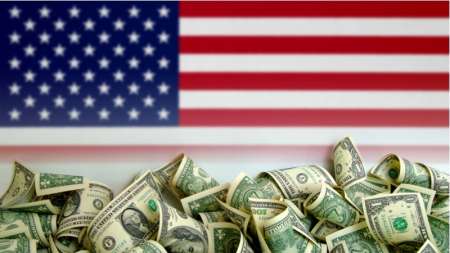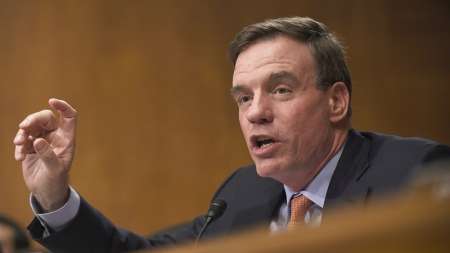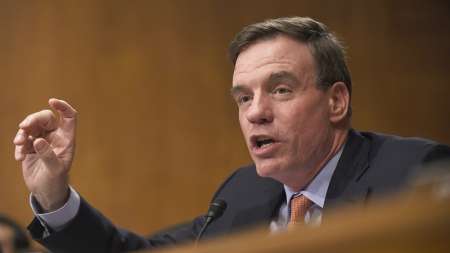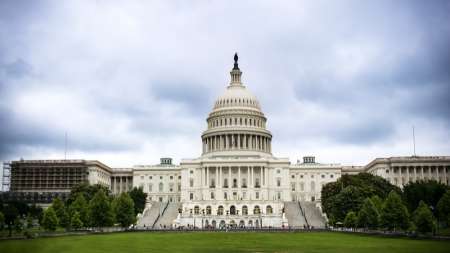Sen. Jacky Rosen, D-Nev., said at a Senate Commerce, Science, and Transportation subcommittee hearing yesterday that she plans to reintroduce the Code Like a Girl Act, which the senator sponsored in 2017 as a member of the House. […]
Software-maker trade group BSA sent a letter to leaders of the House and Senate Armed Services Committees on Thursday urging modernization of the Department of Defense’s (DoD) supply chain security and software acquisition approach in the FY 2020 National Defense Authorization Act. […]
House Energy and Commerce Committee Chairman Frank Pallone, Jr., D-N.J., and Communications and Technology Subcommittee Chairman Mike Doyle, D-Pa., said this week they are concerned that the Federal Communications Commission (FCC) may be violating the Federal Records Act (FRA). […]
Senators and witnesses alike took turns criticizing Chinese tech and trade policy, and China-based network equipment maker Huawei, at a hearing on Thursday over the firm’s alleged potential to create security harms if its equipment was included in U.S. 5G wireless networks. […]
Sens. Ron Wyden, D-Ore, Martin Heinrich, D-N.M., and Kamala Harris, D-Calif., wrote Dan Coats, director of National Intelligence, on Monday urging him to declassify information regarding China’s attempts to influence U.S. elections. […]
U.S. Comptroller General Gene Dodaro, who heads the Government Accountability Office, said in congressional testimony on Wednesday he is “hopeful” that Robert Wilkie, who became the Secretary of Veterans Affairs in July 2018, will have more luck cracking the agency’s pressing problems, including IT, than his predecessors. […]
Several senators said today that high-profile private-sector data breaches like those disclosed by Equifax in 2017 and Marriott in 2018 serve to boost the urgency with which Congress should act to approve legislation that would implement the country’s first national private-sector cybersecurity regulations and procedures. […]
With the 2020 election cycle on the horizon, Reps. Gerry Connolly, D-Va., and Jim Langevin, D-R.I., reintroduced the Fair, Accurate, Secure, and Timely (FAST) Voting Act. The legislation, according to the two Congressmen, aims to “enhance voting system security, improve voter participation, and encourage automatic voter registration.” […]
On Tuesday, Rep. Carolyn Maloney, D-N.Y., introduced the Federal Employees Paid Leave Act to give Federal employees 12 weeks of paid leave for the birth, adoption, or foster placement of a child within their families and for other medical reasons. […]
Democratic members of Congress from the Washington D.C. area sent a letter to the heads of the Office of Management and Budget (OMB) and the Office of Personnel Management (OPM) on Tuesday asking when the White House plans to implement the 1.9 percent annual pay raise for Federal civilian workers included in the spending bill passed in February that avoided a further partial government shutdown. […]
In a letter dated Feb. 27, Sens. Mark Warner, D-Va., and Marco Rubio, R-Fla., requested Dan Coats, director of National Intelligence, produce “an unclassified report on the participation of China and other adversarial nations in the international standard setting bodies (ISSBs) for fifth-generation wireless telecommunications technologies (5G).” […]
The United States Transportation Command (USTRANSCOM) is working to improve cybersecurity infrastructures to prevent breaches of industry partners, like those of USTRANSCOM contractors that began June 1, 2012 and resulted in 20 successful intrusions over a period of 12 months by Chinese hackers. […]
During her keynote address at Monday’s Center for Strategic and International Studies event, Rep. Suzan DelBene, D-Wash., urged the U.S. government to increase its global engagement when it comes to tech–saying that was the only way to maintain U.S. technological leadership. With that in mind, DelBene offered a series of steps Congress can take to maintain U.S. global leadership. […]
The Congressional Budget Office (CBO), in a report released Friday, pegged the cost of H.R. 1–the For the People Act of 2019–at $2.6 billion over the next five years, with $1.5 billion of that going for states and counties to purchase new voting technology. […]
A bipartisan group of senators reintroduced legislation on March 1 intended to ensure that public companies are prioritizing cybersecurity and data privacy. […]
Lawmakers from both sides of the aisle and both houses of Congress joined together on Thursday to reintroduce the Help Americans Never Get Unwanted Phone calls, or HANGUP Act. […]
A group of over 90 local government officials have added their names to a letter supporting a bill from Rep. Anna Eshoo, D-Calif. […]
The Senate Judiciary Committee on Thursday approved the nominations of former FCC Enforcement Bureau Chief Travis LeBlanc and Aditya Bamzai, formerly of the Department of Justice’s Office of Legal Counsel and National Security Division, to the Privacy and Civil Liberties Oversight Board (PCLOB). […]
Reps. Brenda Lawrence, D-Mich., and Ro Khanna, D-Calif., today introduced a new resolution supporting “the development of guidelines for the ethical development of artificial intelligence (AI).” […]
Senior Defense Department officials told House members on Tuesday they are taking additional steps to boost cybersecurity workforce ranks at the Pentagon through means including the Cyber Excepted Service (CES) personnel system authorized in 2016 that allows DoD to expedite and simplify recruiting and hiring for civilian cyber professionals. […]
The Senate may actively take up national data privacy legislation someday, but one key senator in the process indicated today that there is currently little institutional urgency to hurry toward that goal. […]
While much of the country was focused today on the testimony of Michael Cohen–President Trump’s former lawyer–before the House Committee on Oversight and Reform, elsewhere on the Hill the House Committee on Appropriations Financial Services and General Government Subcommittee was hearing testimony on election security. […]
During a hearing on Tuesday, members of Congress, including Rep. Will Hurd, R-Texas, shared their concerns about the Department of Veterans Affairs (VA’s) technology efforts with Secretary Robert Wilkie, including the electronic health record modernization (EHR-M) project, FITARA implementation, and telehealth efforts. […]
Privacy was the topic du jour on the Hill today. In its first hearing in the new Congress, the House Committee on Energy and Commerce Subcommittee on Consumer Protection and Commerce heard testimony from privacy rights activists and technology industry groups on how to protect consumer privacy in the era of big data. All witnesses before the Subcommittee agreed that the Federal government needs to enact Federal data privacy legislation, though witnesses disagreed on what exactly the legislation should cover. […]
Following up on a letter to health organizations to describe their cybersecurity challenges, Sen. Mark Warner, D-Va., sent a letter to the heads of health-related Federal agencies on Monday, calling on them to work towards a national health-sector cybersecurity strategy. […]
A bipartisan group of senators urged Trump administration officials in a letter dated today to ban the use of inverter equipment made by China-based Huawei from the U.S. electric grid, citing the same cybersecurity concerns that led Congress to block Huawei network equipment from the U.S. market because of firm’s alleged links to Chinese intelligence services. […]
Yesterday, Sen. Mark Warner, D-Va., sent letters to various healthcare groups to seek information on ways to best improve cybersecurity within the healthcare industry. […]
In the 115th Congress, a new study found that 226 cybersecurity-focused bills were introduced which was an increase compared to past sessions, but only 10 had been signed into law. […]
A group of Federal lawmakers from Louisiana penned an op-ed in the Washington Times on Feb. 13 urging President Trump to increase funding for cybersecurity education. […]
A bill approved by the Senate Homeland Security and Governmental Affairs Committee last week would direct the Office of Management and Budget and Federal government agencies to promptly publish a laundry list of “guidance” communications that agencies issue and that constitute statements of “general applicability” but do not have the full force of law. […]

